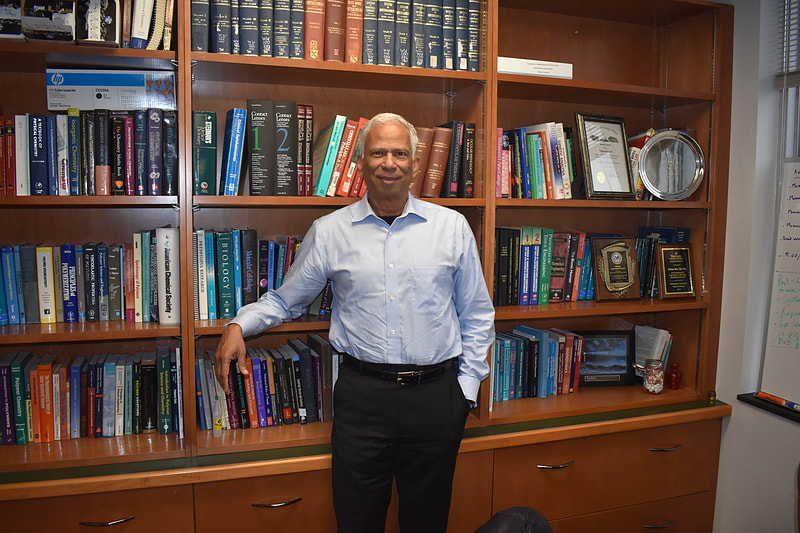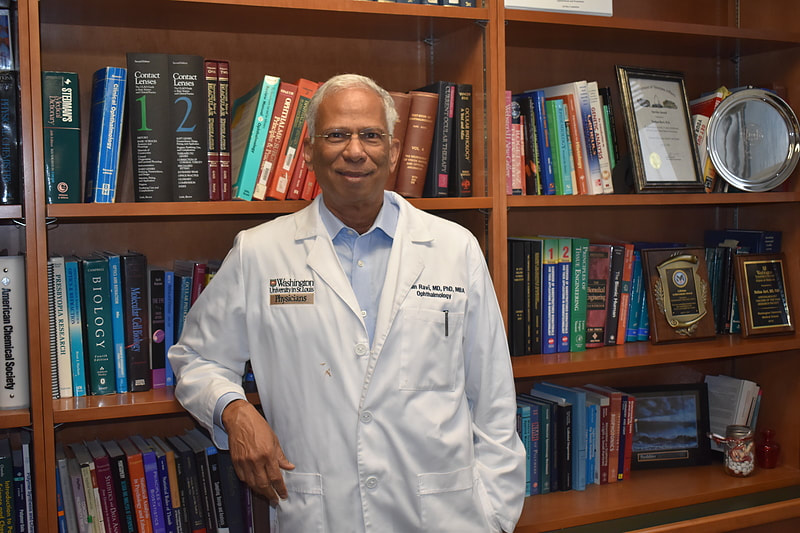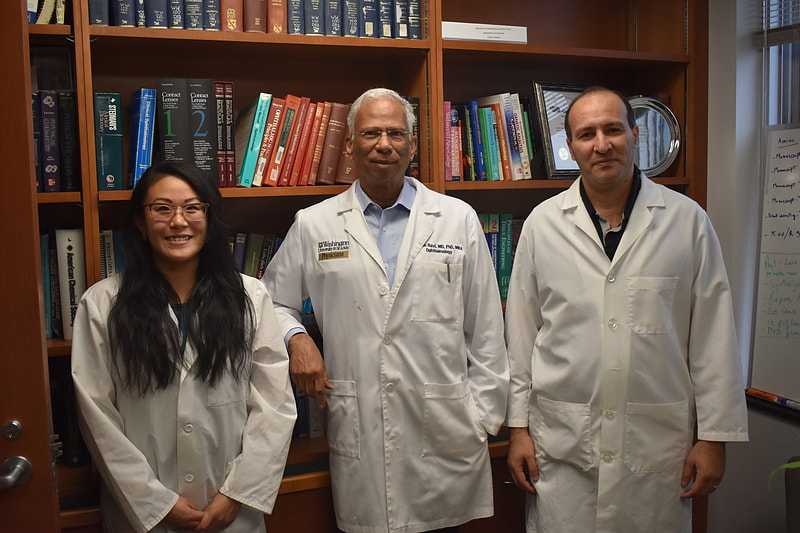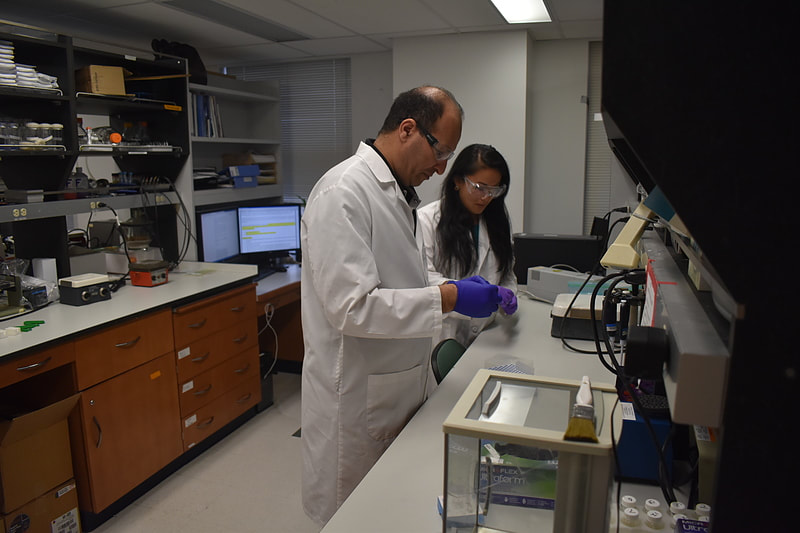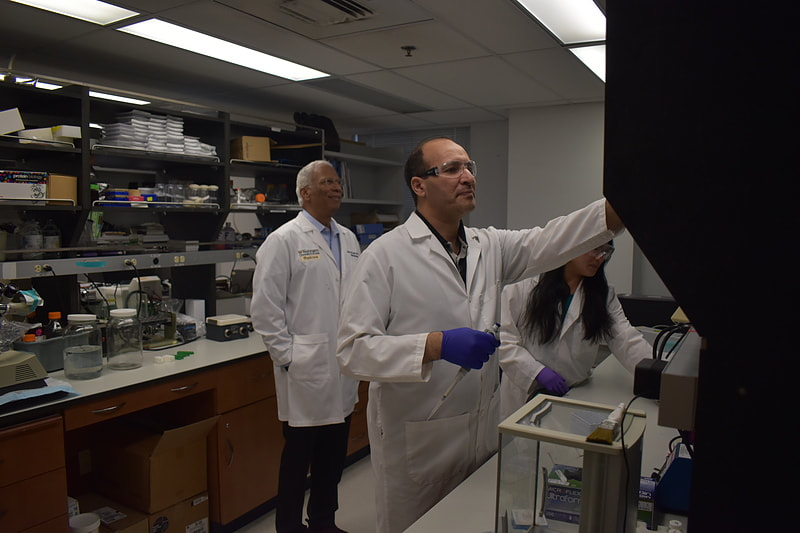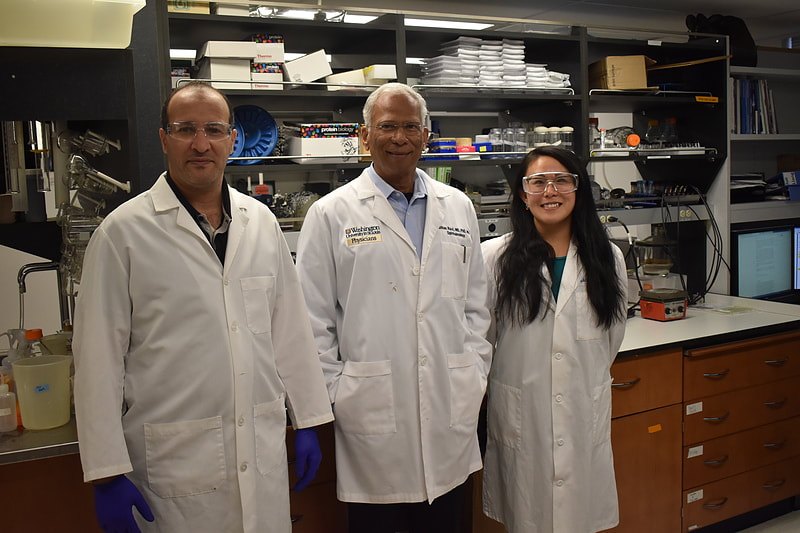Dr. Nathan Ravi
Dr. Nathan Ravi formerly served as an Ophthalmologist and Polymer Science Engineer. Dr. Ravi was with the VA for a very long time, starting as a VA resident in Ophthalmology over 30 years ago. Ravi first came to the US to study Polymer Science and Engineering and began working for NASA trying to create high temperature adhesives for keeping insulation tiles on the spaceships at Virginia Tech. He then got a job working for a company in their Engineering Thermoplastic division. Soon after, they sold that division and purchased an Animal-Health Division, which he then got involved in the application of polymers in animal health. Ravi then received his MD at the University of Miami.
Ravi received a DOD Prime award through the Foundation and has passed some of his work down to PI Dhruv Mitroo.
Ravi received a DOD Prime award through the Foundation and has passed some of his work down to PI Dhruv Mitroo.
Learn more about Dr. Ravi in the interview below:
VREF: What made you choose this field/Specialty?
Ravi:
- After graduating in polymer science from Virginia Tech, I was diagnosed with Diabetes around age 28. I wanted to understand why I was diagnosed because I had no family history, I was slim, and exercised.
- I had to decide a specialty, and I was interested in diabetes so I thought Ophthalmology would be good because I could see diabetic Retinopathy and deal with diabetic patients etc.
VREF: When did you join the VA and why? What drew you to the VA?
Ravi:
- I started at the VA as a resident in Ophthalmology. The VA is a teaching hospital, so the residents are the ones treating the patients. I really liked the attitudes of all the veterans and felt that I owe them a lot because of their sacrifice so when I had the opportunity to work for the VA, I took it.
- The VA is a goldmine for research. When I graduated med school, I was 42, and you can’t just start a new career in research at NIH or any other big research company, but you can at the VA. I had my very first proposal approved by the VA, and I have been grateful for the VA ever since.
VREF: Why did you want to be a researcher? What interested you in Research?
Ravi:
- I am very open minded and creative. I go in different directions depending on my interests. My main passion was to understand why I became a diabetic. What is it in plastic that causes people to be obese and diabetic? Now, I’ve discovered, and I will be writing proposals on what is called Endocrine Disrupters. All the plastic bottles that you use to drink, all have bis-phenol A (BPA) that will make you sick and you won’t know it because it is a slow process.
VREF: Tell us more about your different research Studies:
Ravi:
- My first proposal approved by the VA was to create an accommodating intraocular lens. When you are young, you can change your focus very quickly, and as you age, it takes longer and longer for your eyes to adjust. The ability of the lens in your eye to change shape as you age stops, and you need readers. So, my thought was to come up with an implant that will automatically focus. We were very successful in developing that implant. In fact, the White House, when President Busch was in office, called us to speak about it because we were in the news in NYC and all major television shows and major journals that “A VA scientist has discovered an auto-focusing intraocular lens”. This was around 1998 or 1999.
- We couldn’t go very far with the first study because we couldn’t use animal models. Pigs and rabbits wouldn’t accommodate, and we needed primates. Primates were very expensive, around $40,000 per primate, and you must let them grow old which takes years. The VA didn’t have the accommodations to do this and we had to ditch the project.
- After that first project, then I moved to the Vitreous – which is another part of the eye with a lot of scope for improvement. The vitreous can separate with age and break apart and can tear your retina. Now days they can repair it, and they use a silicon oil. We came up with a better natural substitute. A Bio-inspired Vitreous substitute just like the natural vitreous. VA funded this for years, then the NIH, and now DOD is funding it as a pre-clinical trial. The VA will still be involved, and the next phase will be in humans in 3 years.
- I also have a drug delivery project. There is a disease called Macular Degeneration. It affects a small percentage but is very blinding. The current treatment is an injection in eyeball which is very painful and can have complications. We came up with topical eyedrop that goes to retina and takes care of this disease. We will use gold nanoparticles in the eyedrops. We will be testing it mice beginning in January for 2 years.
- Another project is our Burn Pit Project. When the US army goes abroad to fight, they take a lot of materials with them (food, medical supplies, cars etc.) and they don’t bring them back because it’s very expensive to transport. Instead they create a big crater and put everything in that pit and use jet fuel and burn it up. They do this in the open air, and it leaves behind a mile-long damage of smoke, pollutants, and toxins that causes health hazards for our Veterans. These toxins stay in your organs – mostly in the lungs. We are creating a simulator that will simulate the burn pit. This was just recently funded by the local VA and we are waiting to hear back from Central Office if it was also approved by them. This will be another 2-year project.
VREF: What is your advice for people thinking about a job at the VA or a job in research?
Ravi:
- I always tell my colleagues that the VA is a goldmine for research. If you are a creative person and can work with their enormous bureaucratic workload then you’ll get your research going. It takes patience, but you can get funded and then your research career can take off.
VREF: Tell me more about you as a person. Family? Hobbies?
Ravi:
- I run marathons. I have done about 25 or 26. I didn’t start running until the age of 60. I am very concerned with nutrition. I like to eat clean and don’t eat out often and I work out.
VREF: is there anything else you'd like to say?
Ravi:
- The VA is great place. It is a terrific place to get treatment. Doctors are very good, services are excellent, for example – in any of the chronic diseases that VA treats Veterans for, they do a better job than private sector. It is the best place to get medical care at very economical price.
